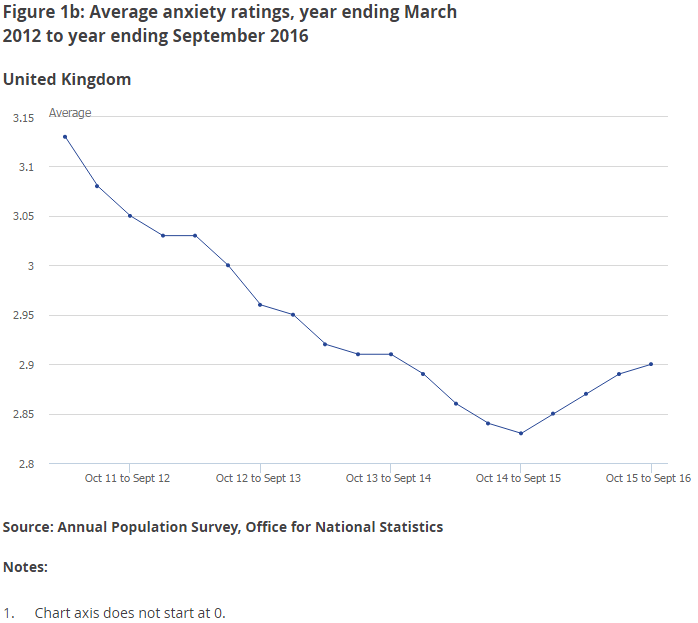Average ratings of anxiety increased slightly between the years ending September 2015 and 2016.
Wales was the only country to have higher anxiety ratings than the UK average.
Average life satisfaction, worthwhile and happiness ratings were unchanged between the years ending September 2015 and 2016.
New rolling quarterly updates
Measuring personal well-being can help us understand how changes in circumstance, policies and wider events in society may affect people’s lives, perhaps more so than traditional economic measures. Up to now, the current publication of official well-being statistics by the Office for National Statistics only allowed for changes in personal well-being to be assessed once a year. With growing demand for timely statistics ONS reduced the lag from the end of the reporting period to 4 months from 6 months. And we look forward to more improvements to the timeliness of these statistics.
In a bid to make the personal wellbeing data more usable by the public and policy makers alike, ONS are publishing for the first time today, annual UK and country estimates for the 4 personal wellbeing questions on a rolling quarterly basis. Personal well-being data will, going forward, be published 4 times a year. Today’s publication contains data from year ending March 2012 to year ending September 2016.


